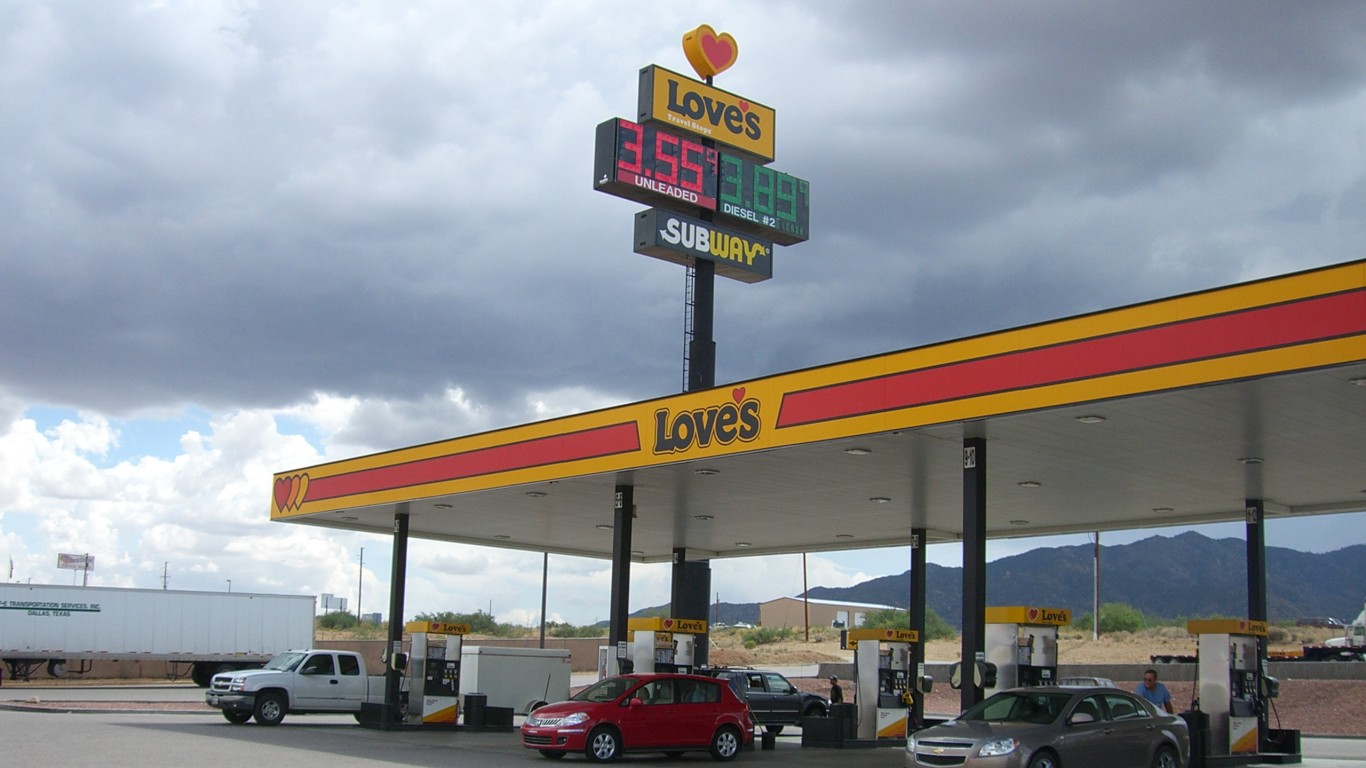 Asked to name top 10 greenest U.S. presidents, most Americans would probably come up with one name at the top of the list but might have a little trouble naming the next 9. Some of the names may be surprising, but the biggest surprise may be that there isn’t a top ten.
Asked to name top 10 greenest U.S. presidents, most Americans would probably come up with one name at the top of the list but might have a little trouble naming the next 9. Some of the names may be surprising, but the biggest surprise may be that there isn’t a top ten.
Canadian-based research firm Corporate Knights, which bills itself as “The Company for Clean Capitalism,” recently asked a dozen environmental groups to name their top three choices and after the votes were tallied, the top ten list had shriveled to just eight names. That’s right, of the 44 U.S. presidents, only 8 received any votes at all. That’s not exactly a rousing commitment to environmentalism.
Here’s the ranking, according to Corporate Knights:
- Theodore Roosevelt
- Richard Nixon
- Jimmy Carter
- Barack Obama
- Thomas Jefferson
- Gerald Ford
- Franklin Roosevelt
- Bill Clinton
Teddy Roosevelt ranks first, probably to no one’s surprise. During his term of office, he provided protection to 230 million acres of wildland America, nearly 10% of the country’s land area at the time.
Richard Nixon gets the nod as number two because he signed into law the National Environmental Protection Act (which led to the formation of the EPA), a strong extension to the Clean Air Act, the Endangered Species Act, and the Safe Drinking Water Act. Not as flashy as TR’s accomplishments, perhaps, but as the Union of Concerned Scientists noted in their response to the survey, these are “seminal environmental protections that have served American’s health and prosperity very well since.”
Jimmy Carter, who most Americans like better as a former president than they ever did while he was in office, protected 100 million acres of wildland in Alaska, but may be best remembered for his pleas to use less energy. In a note on the survey, Worldwatch Institute’s president said of Carter:
His efforts, which failed ultimately, were to engage America in a serious effort to reduce our energy … He literally said to modern America we need to consume less. [We] haven’t seen any other president say that.
Barack Obama gets a fourth-place nod for making a virtue of necessity. Under his administration’s Recovery Act, some $80 billion was directed at clean energy projects. While the success of the investment is arguable, the amount is the largest ever in non-fossil fuel energy. As Greenpeace’s executive director noted:
He is not an environmentalist. He barely cares — it’s not his issue … He turned his back on the climate bill.
That assessment of Obama could be said to be true of all eight presidents on the list, with the exceptions of Teddy Roosevelt and possibly Thomas Jefferson. All made huge contributions to preserving and protecting the American environment, but the impact was usually tangential to a more dominant issue. With Nixon, for example, his clear intention was to make a political trade: environmental protections in exchange for freedom to follow his own foreign policy inclinations. Carter was trying to stave off an energy crisis, and Obama tried to advance alternatives to fossil fuels by pouring money into clean energy research as part of a much larger economic stimulus bill.
Whatever the reasons, though, the U.S. has a solid background in trying to safeguard and protect the environment. It’s far from perfect, of course, and the challenges coming up may be the sternest yet.
Paul Ausick
Take This Retirement Quiz To Get Matched With A Financial Advisor (Sponsored)
Take the quiz below to get matched with a financial advisor today.
Each advisor has been vetted by SmartAsset and is held to a fiduciary standard to act in your best interests.
Here’s how it works:
1. Answer SmartAsset advisor match quiz
2. Review your pre-screened matches at your leisure. Check out the
advisors’ profiles.
3. Speak with advisors at no cost to you. Have an introductory call on the phone or introduction in person and choose whom to work with in the future
Take the retirement quiz right here.
Thank you for reading! Have some feedback for us?
Contact the 24/7 Wall St. editorial team.


